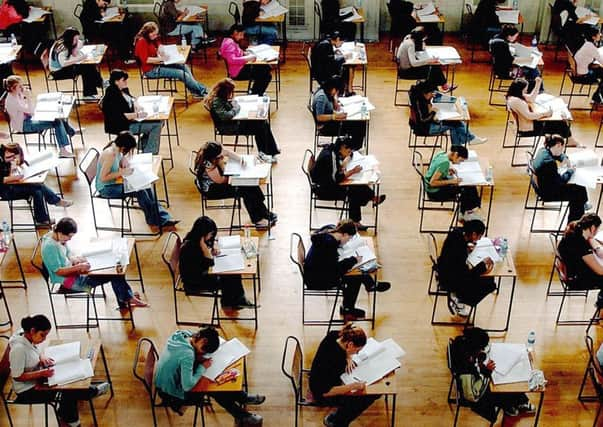Catherine Scott: Why I think GCSE students should sit the same exams


For us it is GCSEs, and what a slog they are, lasting six weeks if you count the half-term breather (crammer) in the middle. The sheer unrelenting nature of the revision/exam combination has stunned me and left me not a little concerned about the effect on our teenagers’ mental health.
My daughter had eight exams last week – she’s about a third of the way through. After each one she was back at her desk revising for the next – and this is a conscientious student who has been revising pretty much non-stop since before her mocks.
Advertisement
Hide AdAdvertisement
Hide AdBut even having worked hard the exams are still extremely stressful. Even for those who are not as conscientious it is still a stressful time. Two years ago the Government changed the way they tested children at 16, reverting far more closely to the O-levels I sat than the previous emphasis on coursework. This means that a child is tested on their entire two years’ syllabus in a hot, intense hall where they are supposed to perform to the best of their ability.
I am struggling to see what it is actually showing a future employer, especially when there are five different exam boards, plus the IGCSE sat by many private schools which don’t come under the regulation of Ofqual. If the point of GCSEs is to show the ability of children across the country then surely they all need to sit the same exams set by the same board, read the same books and be tested on what they have been taught.
Last week’s AQA biology combined science exam had students taking to Twitter furious that the majority of what they had learnt over two years didn’t come up and instead they were asked about beta blockers and nitrate ions. While there will always be things that see disgruntled students bemoaning the exam board on social media, there were science teachers agreeing with them. Some people criticised students for taking to social media instead of revising. For my daughter, it was a godsend as the messages made her realise she was not alone in finding the paper bizarre. She wasn’t upset, she was frustrated. She had learnt the syllabus, she was as ready as she could be for the exam and felt cheated that she was not tested on what she had learnt.
Ofqual say they try to ensure that all papers are of a similar standard and that roughly the same proportion of students receive the top grades each year (other than private schools who set their own.)
If that’s the case why not just have one exam board so that everyone knows where they stand – most importantly our overstressed teenagers?